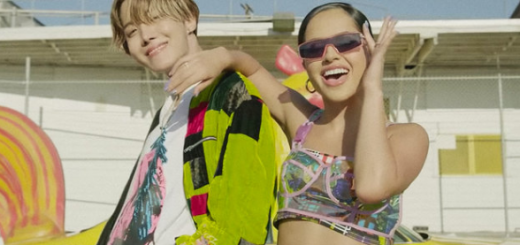STOP by J-Hope Lyrics Meaning – Unpacking the Hidden Plea for Harmony in a Turbulent World
Lyrics
가치관, 성격 대립, 매일 우정 자연재해
좋게 좋게 말해도 의문이 드는 reaction
베푸는 건 내(네) 쪽, 애써 감추려 red sun
Please stop
Stop, stop, stop, stop, stop, stop
Don’t fight
Fight, fight, fight, fight, fight, fight
밉고 야속하지만 한 번 더 생각을 해
어떻게 다 비슷하고 어떻게 다 똑같애?
본질은 바뀔 순 없어, 인지해 가 be myself
단 한 톨의 믿음이 날 지배해
(There are no bad people in the world)
그래, 나도 뉴스는 봐 but what’s that?
Deadly criminal 정말 사람이 저래?
짐승보다 못한 인간들의 행위 참 더럽더라고
심하게 말해 사람 새끼인가 싶더라고, 나도
Wait, stop
Stop, stop, stop, stop, stop, stop
Calm down
Down, down, down, down, down, down
그래, 이건 원초적으로 돌아가 다시 그들을 봐
살아온 환경, 교육, 시스템, 나와 다른 부분은 무엇인가?
의지해 보는 거야 하나만
인간 본연의 모습, 그 하나만
Please be right
요즘은 smart한 세상 but not smart한 게 태반
분노의 비대면 회담, 희생은 시간문제야
불안전한 area so, too many viruses
무의식적인 오염, 나도 피할 순 없는 거야 이젠
Stop, stop, stop, stop, stop, stop, stop
Change our minds
Minds, minds, minds, minds, minds, minds
인과법칙에 의하여 세상에 나온 우리
그렇다 한들 일체유심조 우리가 만드는 거지
작은 시작이 큰 발걸음이기에
세상은 변해, 나쁜 사람은 없기에
That’s right?
Within the sonic universe that J-Hope has carved for himself, ‘STOP’ stands as a stark, raw cry for introspection and unity. Through a tapestry of rhythm and introspective lyricism, the BTS member holds up a mirror to society, reflecting the tumult and discord that characterize modern human relationships.
Released into a world rife with digital conflicts and real-life distances, ‘STOP’ is more than just song; it’s J-Hope’s earnest call-to-arms for peace and understanding in the face of adversity. The music resonates with a message that is both timely and timeless, encouraging listeners to pause and contemplate the personal and environmental factors that lead to well, to put it simply, everything that’s wrong with the world today.
A Dance on Thin Ice: The Struggle Between Friends
J-Hope doesn’t shy away from illustrating the tensions that threaten the bonds between friends. His words ‘힘든 게 있어 내 친구에대해’ (Right, I’m having a tough time with my friend) paints a vivid picture of the strain and conflict arising from clashes in values and personalities. The ‘daily natural disaster of friendship’ metaphor signifies the unpredictable and potentially devastating impact of these conflicts.
He underscores the effort to maintain peace through ‘좋게 좋게 말해도 의문이 드는 reaction’ (Even if I speak kindly, the reaction is doubtful), which lays bare the uncertainty and skepticism that often permeates conversations, hinting at the fundamental disconnection and miscommunication that we, as a society, struggle with.
STOP the Cycle of Resentment: A Call to Reflection
The repetitious plea ‘Please stop, Stop, stop, stop…’ serves not only as a catchy chorus but also as an urgent request for restraint. The simplicity of the word ‘stop’ becomes a powerful tool in J-Hope’s lyrical arsenal, demanding that we halt the negative patterns in our interpersonal dealings and take a moment to reflect.
J-Hope questions the norm, asking ‘밉고 야속하지만 한 번 더 생각을 해 어떻게 다 비슷하고 어떻게 다 똑같애?’ (Even though it’s hateful, think again, how can everything be similar, how can everything be the same?), challenging listeners to reconsider their perspectives on sameness and difference—and by extension—on conflict and tolerance.
The Inner vs. Outer Debate: Embracing the Self Amid Chaos
In a powerful declaration of self-identity, ‘본질은 바뀔 순 없어, 인지해 가 be myself’ (The essence can’t change, I realize, be myself), J-Hope advocates for staying true to oneself amidst the pandemonium. The revelation that ‘단 한 톨의 믿음이 날 지배해’ (A single grain of faith dominates me) is an insightful glance into internal fortitude, advising that one’s belief system is what ultimately guides actions and attitudes.
He further contemplates the nature of evil, questioning the acts seen on the news and wondering if ‘인간 본연의 모습’ (the true nature of humans) is becoming obscured by the inhumanity showcased in media, and whether we’re all susceptible to this stark transformation.
The Power of Perception in a Smart yet not Smart World
J-Hope’s astute observation ‘요즘은 smart한 세상 but not smart한 게 태반’ (These days, the world is smart but not many things are smart) takes a jab at the irony of technological progress that hasn’t translated into collective wisdom. The ‘faceless rage’ and ‘insecurity of the area’ he mentions highlight a societal paradox where the ability to communicate has exponentially increased, yet the quality of our discourse has degraded.
This technological dilemma he depicts is a double-edged sword that has both connected us and wedged us further apart, leading to ‘too many viruses’ of misinformation and misunderstanding, which J-Hope acknowledges as an inescapable plague in our digital era.
The Transformative Echo of Hope in ‘STOP’
J-Hope doesn’t leave the listener in a place of despair. The lines ‘인과법칙에 의하여 세상에 나온 우리 그렇다 한들 일체유심조 우리가 만드는 거지’ (We are born into this world by the law of causation, but still, all is the mind—what we make of it) emphasize the Buddhist concept of interdependence and the power of the mind to shape reality.
His final assertion—’세상은 변해, 나쁜 사람은 없기에’ (The world changes, because there are no bad people)—is not a dismissal of wrongdoing but an optimistic belief in the potential for change and goodness in everyone. This embodies the central message of ‘STOP’: the need for a change in mindset, one that starts small but marches confidently towards a more harmonious existence.








